
COVID-19 is reconfiguring organized crime in Latin America and the Caribbean
Latin America and the Caribbean are suffering from the twin epidemics of COVID-19 and organized crime and violence.

Latin America and the Caribbean are suffering from the twin epidemics of COVID-19 and organized crime and violence.

This is the startling observation made by authors Ian Goldin and Robert Muggah in the introduction to their fascinating new book, Terra Incognita

The COVID-19 pandemic is a profoundly urban crisis. The vast majority of the millions of reported cases worldwide are concentrated in overcrowded neighbourhoods and informal settlements.

This article is part of a series in which leading experts reflect on emerging trends for cities seeking to address hate, polarisation and extremism.

JBS, the world’s largest meatpacker, is turning to blockchain to ensure the traceability of the tens of thousands of cattle it processes every day in Brazil, following intense pressure from both investors and activists over its environmental record.

We can give people a better sense of what’s happening around them at a time of extreme confusion and a motivation to act. Because ultimately, the future is what we make it, says ‘Terra Incognita’ co-author Dr Robert Muggah.

Robert Muggah (apparently an old Scottish name, though he is Canadian) has set up two think-tanks in Brazil, where he is based: the SecDev Group focuses on the digital economy and cybersecurity.

Recent political developments in the United States are threatening internet freedom and cybersecurity across Latin America.

Robert Muggah, co-founder of Brazil-based security and development think tank Igarape Institute, said that while Monday’s operation will “sting,” it is “unlikely to make a major dent on the PCC” given the organization’s vast size, hierarchy and deep roots in the country’s prison system.

Muggah, who runs a think-tank working on data-driven justice across Latin America called Igarapé Institute, says that Colombia’s sky-high rate of homicide made it not just difficult to differentiate the victims of serial killers from all the other victims, but it made it incredibly hard for the police to investigate, much less prosecute perpetrators.

The world has learned much about the devastating impact of COVID-19 on human health and well-being. It is also waking up to the pandemic’s positive effects on the planet’s atmosphere, ecosystems, and biodiversity.

During the first half of 2020 when more than two-thirds of the world’s population was in lockdown, many of us were transfixed by a map.

What remains of the global, open internet came under attack this month.

The U.S.-China dispute just took a dangerous turn. Late last week, the U.S. government issued three separate measures – two executive orders imposing sanctions on social-media networks WeChat and TikTok, and another to set up a “clean network” program – that, come mid-September, would prohibit any U.S. citizen or company from conducting business with those apps’ Chinese parent companies, Tencent and ByteDance respectively.

As explained in my new book with Ian Goldin – Terra Incognita: 100 Maps to Survive the Next 100 Years – maps can help make sense of the world around us.

This week, PS talks with Robert Muggah, a co-founder of the SecDev Group and the Igarapé Institute.

This study considers the trajectories of armed conflict in a ‘business-as-usual’ scenario between 2020-2030.
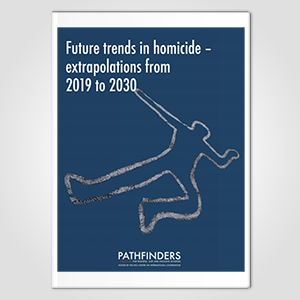
Most countries have actually experienced sustained declines in homicidal violence across several decades. Notwithstanding the disruptive effects of COVID-19 and associated economic stresses in 2020, these trends are expected to continue in several parts of the world.
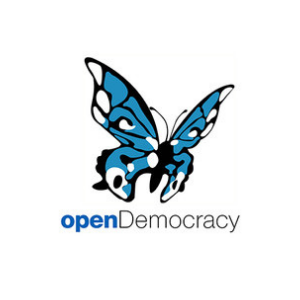
The only surprise about Jair Bolsonaro’s diagnosis for COVID-19 was that it took him so long to test positive.

“I can’t breathe.” The final words gasped by George Floyd are now a global meme. They were recorded on the mobile phone of a bystander while Mr. Floyd was being suffocated to death by a police officer in Minneapolis.
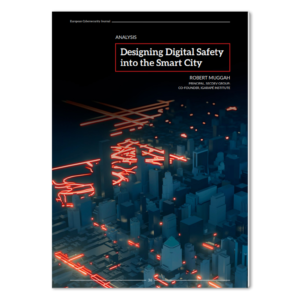
This article explores two basic questions: (1) What are the cyberthreats facing cities and their residents; and (2) How can cities and city networks work to improve their digital safety? These may be among the most significant – if under-appreciated – questions facing cities in the 21st century.

Brazil had 41,635 killings in 2019, down 19% from the prior year and the least number of homicides since 2007, when the so-called Violence Monitor index was launched.
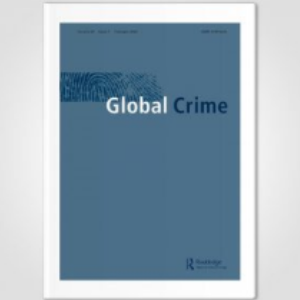
Focused on Mexico City, this article offers a seminal examination of the relationship between block layout and intentional homicide.
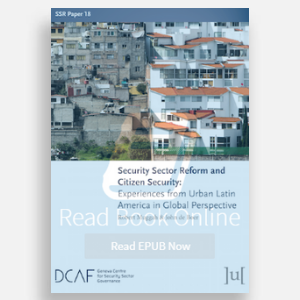
While widely considered a core pillar of the peace and security architecture, Security Sector Reform (SSR) is coming under fire. SSR theory and practice are criticized for being overly focused on traditional conflict and post-conflict settings and for being unable to adjust to unconventional settings marked by chronic crime and terrorism.

I study violence in Latin America, and I’ve observed a sharp increase in reports of religiously motivated crimes in Rio de Janeiro since 2016, in particular attacks on “terreiros” – the temples of the Candomblé and Umbanda faiths.
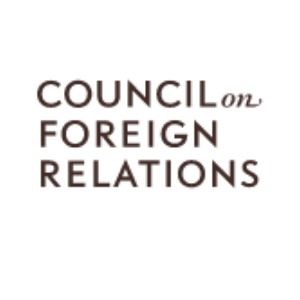
After years of procrastination, Brazil has finally adopted comprehensive data protection legislation. In mid-2018, the government approved Law 13.709, known by its Portuguese acronym, LGPD.

Violence has always been one of humanity’s most serious global challenges. Hundreds of millions of men, women, and children have been killed or maimed by armed conflict, crime, extremism, and sexual and gender-based violence. Not only does violence exact a massive social and economic toll, it depreciates human capital and undermines important civic and social institutions.

Violence has always been one of humanity’s most serious global challenges. This is because for most of history, we were natural born killers. Hundreds of millions of men, women and children have been killed or maimed by armed conflict, crime, extremism and sexual and gender-based violence.
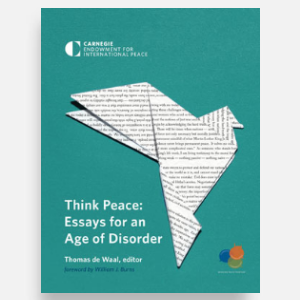
As Rachel Kleinfeld and Robert Muggah note, levels of state-to-state conflict in the world are now at historic lows. The world’s big powers confront one another by other means, whether that be proxy war in third countries, punitive trade tariffs, or digital subversion.

The development of the Case study: Crime prediction for more agile policing in cities has been researched and written by Katherine Aguirre (Igarape Institute), Emile Badran (Igarape Institute) and Robert Muggah (Igarape Institute) and has been edited and revised by Okan Geray (Smart Dubai Office).

The Igarapé Institute uses cookies and other similar technologies to improve your experience, in accordance with our Privacy Policy and our Terms of Use, and by continuing to browse, you agree to these conditions.

O Instituto Igarapé utiliza cookies e outras tecnologias semelhantes para melhorar a sua experiência, de acordo com a nossa Política de Privacidade e nossos Termos de Uso e, ao continuar navegando, você concorda com essas condições.

